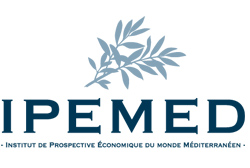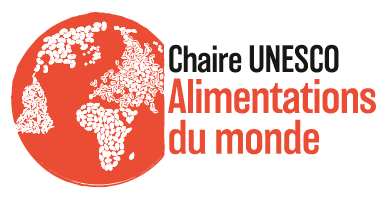
The Mediterranean Diet, a Tool for the Sustainable Development of Territories
Institut de Prospective Economique du Monde Méditerranéen / Institute for the Economic Evolution of the Mediterranean World (IPEMED) promotes the sustainable development of rural territories by encouraging consumers to buy local thanks to the concept of the Mediterranean Diet.


Overview of the project
Context
Over the past forty years, a globalised model has gradually replaced the Mediterranean diet in the countries of the region. As a result of an agro-industrial diet, there has been a sharp increase in food-related chronic diseases (obesity, cardiovascular disease, type 2 diabetes, cancers), constituting a huge social problem with considerable hidden costs. Due to the globalisation of consumption habits, food product imports to the SEMCs (Southern and Eastern Mediterranean countries) have exploded (more than 75 billion USD in 2017, of which 20 billion USD is for the Maghreb). The perverse effect of these imports is the destruction of local agro-food sectors. The agro-industrial model expansion in Mediterranean countries has heavy environmental impacts in a fragile region from a land and water point of view. The result is a very worrying food insecurity.
Project
- Conduct a diagnosis of food systems in the Southern Mediterranean countries (part of the “5+5” dialogue) and choose two pilot regions (provinces or willayas) in each country.
- Design a “territorial food strategic project” for each selected region based on sustainable development criteria.
- Identify and quantify driving actions.
Methodology
- Participative strategic foresight workshops.
Use the concept of the Mediterranean Diet, a UNESCO intangible heritage site, to establish territorialised food systems in Mediterranean countries; promoting sustainable development of rural territories on the basis of local products (supply policy) and acting on the urban consumers' behaviour to encourage them to buy local.
Ongoing research
Since 2015, exploratory research providing initial results, available in the reports published by IPEMED, has been conducted in the framework of IPEMED and the UNESCO Chair of Montpellier SupAgro.
organisation

The Institut de Prospective Economique du Monde Méditerranéen / Institute for the Economic Evolution of the Mediterranean World (IPEMED) is a think tank that contributes, through the ideas it produces and disseminates, to bringing Africa, the Mediterranean and Europe closer together around common projects in the fields of economy, water and sanitation, agriculture, food sovereignty, and energy, always from a forward-looking perspective.
IPEMED heralds, in the medium term, the creation of a foundation: La Verticale (Africa, Mediterranean and Europe).
in collaboration



